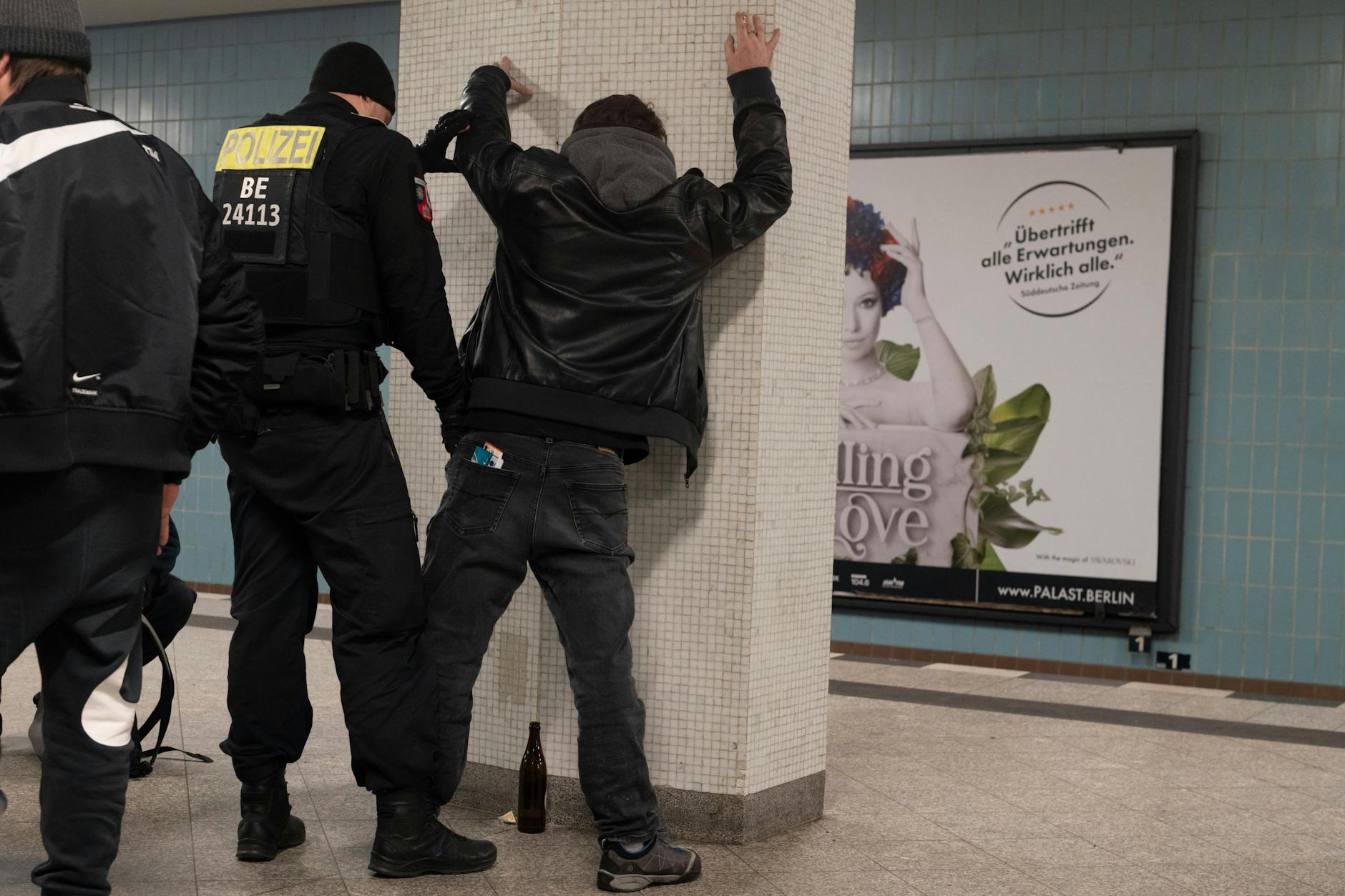Berlin Senator: Anyone carrying a knife on the subway risks losing their driver's license

The debate about the dangers posed by knives and the rise in crime continues. Now, Berlin plans to enact a general ban on knives and weapons on subways, suburban trains, trams, buses, on platforms, and in train stations. The Senate agreed on a corresponding new ordinance at its meeting on Tuesday. It is expected to take effect on July 17.
If weapons and knives are banned on subways, trams, buses, on platforms, and in train stations, the police will have the opportunity to conduct checks regardless of any specific suspicions. This is not currently permitted.
Knife ban on buses and trains: Police may carry out checks without causeA general ban on weapons and knives has been in effect since February 15 in Görlitzer Park, at Kottbusser Tor in Kreuzberg, and at Leopoldplatz in Wedding. According to Interior Senator Iris Spranger (SPD), nearly 100 knives were found during checks there.
The Federal Police also has experience with bans on dangerous objects. It is in effect in Berlin until June 30th, making a new, uniform regulation necessary. The stations affected are Hauptbahnhof, Südkreuz, Zoologischer Garten, Friedrichstraße, Alexanderplatz, Gesundbrunnen, Spandau, Ostbahnhof, Warschauer Straße, Ostkreuz, Lichtenberg, and Neukölln. The ban includes knives, axes, tear gas, and baseball bats, as well as firearms of all kinds. Similar wording can already be found in the BVG's user regulations and the terms and conditions of carriage of the Berlin-Brandenburg Transport Association (VBB).
At the press conference following the Senate meeting, Spranger recalled a dramatic escalation in April of this year that began on a subway train at Sophie-Charlotte-Platz in Charlottenburg and resulted in two deaths. One man was fatally stabbed by another man, and the perpetrator was ultimately shot dead by police officers while also attacking them.
Spranger spoke about the importance of preventive measures. For her, it's clear: "With our strategy, we're gradually removing knives from public spaces. People are gradually becoming aware that they can be checked at any time." Fines of up to €10,000 are threatened. The message is clear: "You have to leave your knife at home!" And: "This regulation can save lives."

The Berlin regulation is intended to align with the one that has been in effect since the fall for long-distance and suburban rail services. Carrying weapons and knives has been prohibited there since October of last year. This includes blank-firing and signal weapons, as well as all knives, including small pocket knives. Exceptions include, for example, separately packaged knives that are not readily accessible. The same applies to "cases of legitimate interest," such as when restaurateurs transport tools.
There are also distinctions regarding pepper spray. This is considered a weapon under federal law—and is therefore also prohibited. However, not all sprays are created equal, according to Spranger. For example, many people carry animal repellent spray out of a need for security. This is not prohibited because, for example, it doesn't emit a targeted stream. However, there is a minimum age of 14 or 16, depending on the type of spray.
Weapon ban: Pepper spray is differentiatedSpranger reiterated that anyone found repeatedly carrying a knife can lose their driver's license —or be denied the right to obtain one. The responsible State Office for Civil and Regulatory Affairs (Labo) has already revoked the licenses of four men for this reason. She did not specify for how long this would apply. Two more people have since undergone psychological evaluations.
The connection between knives and driving is clear to the Interior Senator. "A driver's license requires a certain level of character. And someone carrying a large, preferably visible knife lacks that level of character," Spranger said. A driving ban hits these offenders particularly hard. Furthermore, "These people usually enjoy driving and usually drive too fast." However, decisions are made on a case-by-case basis, as the severity of the offense must always be taken into account, Spranger said.

The legal regulation will come into force as soon as it is published in the Berlin Official Gazette, it was announced on Tuesday. This is expected to happen on July 17. After that, the security forces will conduct priority operations for the first two weeks, but always "with a sense of proportion," the politician said. Good communication is particularly important, especially in the beginning. Spranger added that one cannot just enforce the law, but must also explain. To this end, they are also "in good discussions" with the Police Union (GdP) and the German Police Union (DPolG).
How successful these discussions actually were remains to be seen. Frank Teichert, deputy chairman of the Berlin DPolG, expressed his skepticism about the knife ban when asked by the Berliner Zeitung.
He can already see "ten pages of exceptions" in his mind's eye, because tradespeople also travel by train and carry their tools with them. "And, like a déjà vu, parallels to the jelly regulations are evident." Teichert is referring to the wording regarding the weapons-free zones.
For the Greens, knife bans are a “gateway to racial profiling”The decision is also not being welcomed by political rivals. Green Party interior politician Vasili Franco, for example, considers an extension of the ban to be fatal. "A wrong measure does not become right simply by extending it," Franco said in response to an inquiry from the Berliner Zeitung. For him, knife-free zones are "symbolic political activism." Last but not least, he argues that random, unprovoked checks are "not a crime-fighting strategy, but a gateway for racial profiling."
Racial profiling means that police officers target or suspect people based on their appearance, particularly their skin color or ethnicity, without any specific suspicion of a crime. This is discriminatory.
Berliner-zeitung





